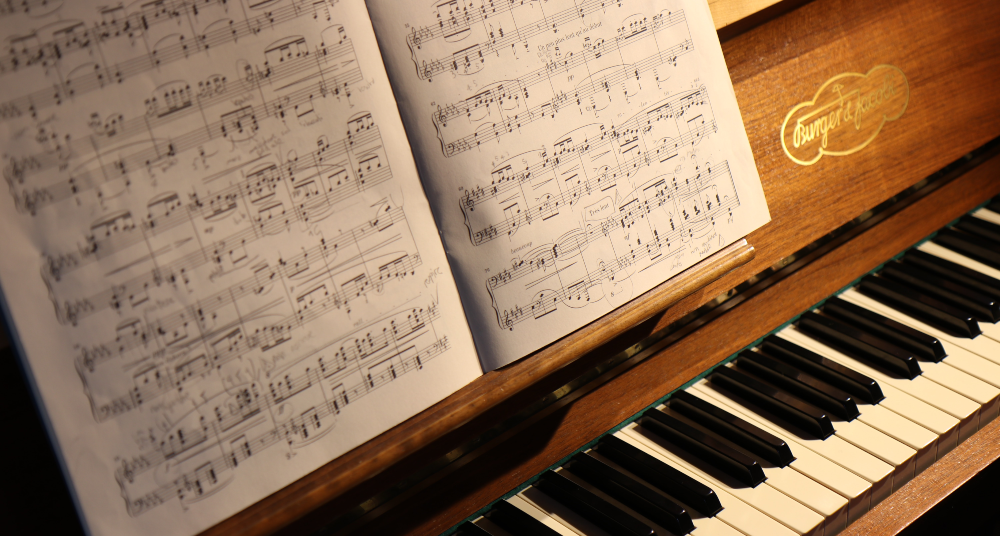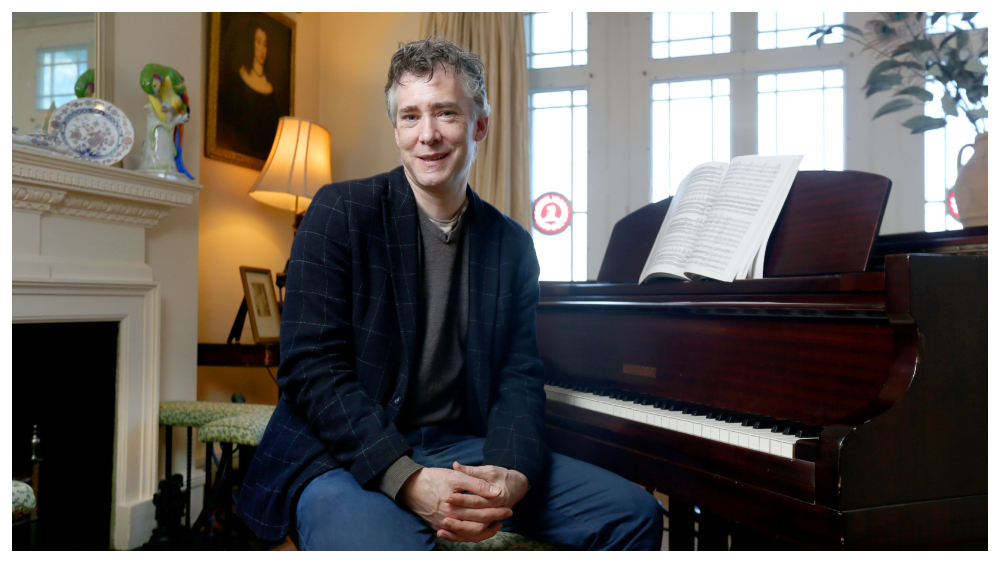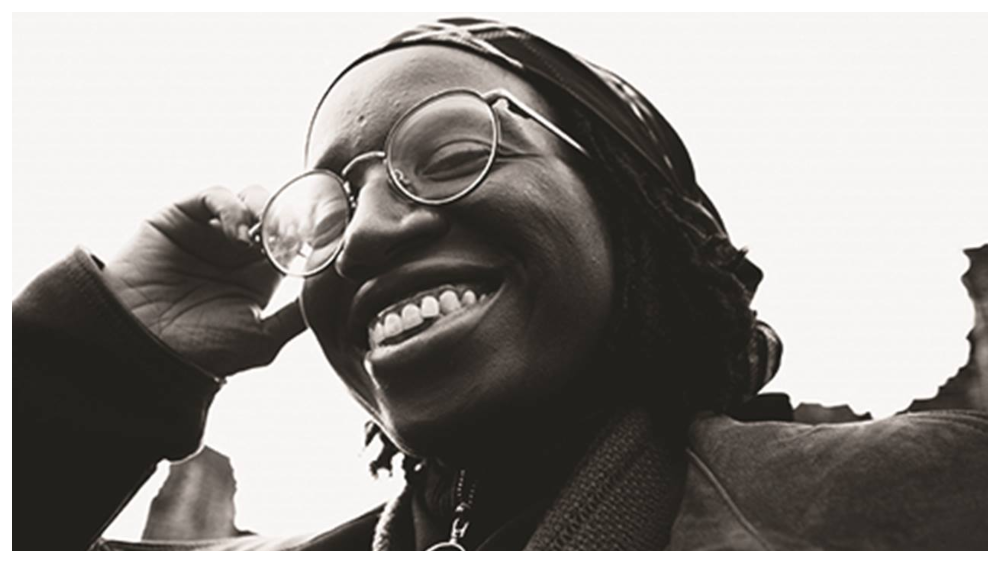This week, a Help Musicians survey of over 500 professional musicians found that 98 percent are concerned about their earning ability over the next six months. The cost-of-living crisis is hitting the industry, with many respondents worried about paying for energy, food, housing, and musical equipment. Earnings have also been affected by post-Brexit restrictions on touring and composers’ struggles to access work abroad. For many smaller and independent practitioners, touring in the EU is no longer financially viable. Add to this the fact that audiences across the country have still not returned in their pre-pandemic numbers, and you start to build a full picture of the squeeze affecting the sector.
As part of this year’s inaugural Composers Week, the Ivors Academy is launching Composers Under Pressure?, a dialogue and campaign exploring the challenges and opportunities facing composers today. Born out of a survey of previous Ivors Composer Awards winners and nominees, the campaign aims to build a picture of the landscape today, as well as look towards the future.
Ivors Academy Classical Council chair Lloyd Coleman is keen to stress that the Composers Under Pressure? campaign is the start of a conversation rather than a funeral dirge. But, like many of their peers across the industry, composers are feeling the strain. In addition to the issues affecting the music industry at large, 44 percent of respondents to the Composer Under Pressure? survey reported a decrease in their number of commissions.
‘Classical composers work in a model where often we rely on live performances of our music,’ says Lloyd. ‘I think many classical composers will tell you they gain a very small proportion of their income from streaming royalties or album sales. The commissioning fee is a hugely important part of their income.’
In many cases, the commissioning fee is what allows composers to continue doing their work. It means that they can afford to take the time to write the two-hour opera, or the half hour concert work for an orchestra. Lloyd notes that this was already a difficult model without the additional stressors, but it is becoming an untenable situation. ‘The cost-of-living issue has only exacerbated that for many people,’ he says. ‘You’re definitely seeing that trend of more people having to take work from other forces, be it teaching, or working in another organisation, or working outside the arts altogether.’
‘The less time you spend being able to compose, the less you’re on the scene and the less you’re able to develop your profile as a composer, and to have work played and have people listening to it.'
Relying on a portfolio career, while effective and fulfilling for some, can also kick off a vicious circle. ‘The less time you spend being able to compose, the less you’re on the scene and the less you’re able to develop your profile as a composer, and to have work played and have people listening to it,’ says Lloyd.
Post-Brexit complications have only put more pressure on artists’ concerned about their profiles abroad, with travel restrictions and issues with obtaining visas making it difficult to work with organisations in the EU. Closer to home, though, Lloyd says that it is hard to overstate the impact the pandemic is still having on composers’ incomes.
‘Many audiences have not returned to concert halls and venues, and they’re booking much later. Promoters are very nervous about ticket sales and audience attendances post pandemic, because of the profound shock that had on our cultural ecosystem,’ he says. ‘That inevitably feeds back on the composers and the creators in the future. If we can’t sell as many tickets we can’t do as many concerts, we can’t commission as many composers, and so forth.’
‘We need that new music for the UK to continue to be seen as a world beating hub of creativity and amazing music creators and musicians.'
The potential knock-on effect to the country’s musical landscape is stark. ‘Without that new music, and without new ideas and new inventions being made, then the art form is static. It’s just repeating itself,’ says Lloyd. ‘We need that new music for the UK to continue to be seen as a world beating hub of creativity and amazing music creators and musicians. It’s a relationship we’ve had for so long. And that is something that is a lot more imperilled at the moment.’
Another factor causing concern for the future of music in the UK, particularly within England, is the pressure on state-funded music education in schools. Good investment in classical music starts long before new composers reach the professional level. Lloyd recalls that at the 20th anniversary celebration for the Ivors Composer Awards this week, composer and orchestrator Charlotte Harding spoke ‘passionately and brilliantly’ about her own school music lessons. Having been hugely influenced by her music teacher at school and taking saxophone lessons as part of the state-run system, Charlotte has gone on to win an Ivors Composer Award among other accolades.
Her experience closely mirrors Lloyd’s own, and protecting that system is something he feels passionately about. ‘I got free music lessons, free school clarinet lessons. There was a school orchestra, there was a local youth orchestra, there was a county youth orchestra. There was a real sense of progression. That ecosystem has become increasingly fragile and is almost in danger of falling apart. In some areas of the country, the provision is patchy at best,’ he says.
‘Having access to free music lessons, and to instruments and to teachers who are well trained and passionate about teaching music is a birth right, I think. It should be seen as much more of a central facet to our education system.'
Local charities and after school programmes are doing good work, but there is something to be said for families not having to seek this education out. If children encounter music during their day-to-day school life, those that weren’t already interested might find something sparks. It’s difficult to pursue something you haven’t been exposed to. ‘Having access to free music lessons, and to instruments and to teachers who are well trained and passionate about teaching music is a birth right, I think. It should be seen as much more of a central facet to our education system,’ says Lloyd.
While there are a lot of points of stress for composers in 2022, the Composers Under Pressure? campaign also has optimism for the future. Innovations in social media and technology, for example, have allowed composers to take more control of the way that they work in terms of genre and publication. These tools can also increase composers’ reach and go some small way to counteracting the current difficulties with travelling and working abroad. On the equipment side of things, new developments can allow orchestras to work with non-traditional instruments to create new sounds and aural compositions. ‘There are opportunities there to further the artform,’ Lloyd says.
Elsewhere, crowdfunding and community funding sources have allowed composers to continue generating new works on their own terms. ‘The opportunity with technology is the sort of democratisation of being able to create music that genuinely in your own image, and genuinely what you want to make,’ says Lloyd.
The Composers Under Pressure? campaign will kick-start conversations around the very real difficulties facing the classical sector and composers across the board. But it is by no means a negative campaign. There are reasons to be optimistic. ‘It is also incumbent on us as composers to adapt as far as we can,’ says Lloyd. ‘And with some of the challenges that are coming through, I think there are opportunities to adapt as well.’
All of this, he says, is just the start of a conversation. But he is hopeful it is one that will lead to positive things for composers in the future. ‘I am by my nature, a bit of an optimist,’ he says.





